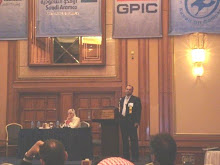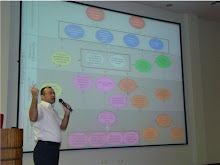Should a business case be formal, justifiable, and in Dollar value/financial figures?
why do some organizations initiate projects without objective business cases?
Portfolio management and strategic planning are methods that lend the importance of a specific project business case towards the overall benefit of the portfolio or the programme of projects. In this aspect, a project with an ‘unjustified’ business case especially from the financial perspective can be accepted and implemented because it enables the realization of higher level organizational benefits.
This approach leads to less emphasis on formal business case development or using preset weighting systems for each project based on financial and objective criteria. Instead of objectively considering the dollar value and the grabbed opportunities (pros) along with the ‘opportunity cost’ of taking this project (cons), then making a conscious decision; I see that this approach would open a window for subjective decisions and executive powers to be the basis of decisions made to promote or exclude certain projects.
In some cases, the business case can be as big as a project by itself. It is sound practice to do so according to project size, complexity, etc. and of equal importance, when the project is to be managed in a stable surrounding. However, I believe that the importance of having a highly detailed business case in some competitive or rapidly changing environments can decrease significantly. This is due to having more qualitative factors that make it a challenge to have them ‘weighted’ quantitatively; and circumstances upon which a business case is based would change rapidly.
Agility, multi-phasing, decision gate review, flexible objectives and less formal business cases can be options to look at in this case.
In fact, this topic would promote the importance of establishing a PMO that should balance the formality and importance of business cases and ensure that only the right projects are accepted and pipelined. Furthermore, a key responsibility of PMO is to include the effect of ‘time’ and the rapidly changing environment and promote, terminate, or realign projects accordingly in order to stay in phase with the organizational strategic objectives. These strategic objectives would in-turn be changing!
Regards,
Samer
About The Author

- Eng. Samer el Barakeh, MPM, PMP
- Samer el Barakeh was born in Lebanon, 1973. He completed his Bachelor in Engineering-CCE at Beirut Arab University-Lebanon in 1996 with honours. Samer was granted Masters Degree in Project Management (MPM) from the University of Sydney-Australia with honours. He also gained the Project Management Professional (PMP) Credential from The Project Management Institute (PMI). Samer is a member of the Order of Architects and Engineers in Lebanon since 1996, The Project Management Institute (PMI), Arabian Gulf Chapter (AGC-PMI) and Lebanon Chapter-PMI. During his 13 years of professional experience in Lebanon, Australia and Saudi Arabia, Samer held many positions among them: Telecommunication Site Engineer, Site Manager, Low Current Service Head, and he is currently Senior Systems Analyst at the General Project Construction Division. Samer is a Project Management Consultant and Training Provider for universal organizations like Business Management Consultants (USA) www.bmc-online.com and PMCTQuest (Canada) www.pmctquest.com Samer is a Registered Training Provider for Project Management Professional (PMP), and he provides training in Program Management, Portfolio Management,PMO...
Select a topic to view content
- A comparison between PMBOK and Prince2 Methodologies and reflection on case study examples (1)
- ABC to Avoid Project Failure (1)
- Business Case and Quantitative Benefits (1)
- Do we need more 'Planners' ? (1)
- Fasilitator in Partnering-A Coincise Shot (1)
- How to Ensure Stratgic Alignment of Our Projects? (1)
- Individual Dissimilarity and Team Work (1)
- Knowledge Management (1)
- Maturity Models-The Pros and Cons (1)
- Organizational Advantages from Partnering (1)
- Organizational Maturity: Lets Head Upwards... (1)
- Organizational Strategy and Project Alignement (1)
- Practical Solutions 1 of 6: Introduce RMMM (1)
- Practical Solutions 2 of 6: Facilitate Change to Perk up Maturity (1)
- Practical Solutions 3 of 6: Leverage Organisational Culture Barrier (1)
- Practical Solutions 4 of 6: Organisational Cultural Alignment (1)
- Practical Solutions 5 of 6: Defining a Unified Decision Making Tool (1)
- Practical Solutions 6 of 6: Understanding The Paradox of Control (1)
- Programme Management to Implement Strategy (1)
- Project Management and Construction Management (1)
- Project Managers relocated before Proper Project Closure and Learning Lessons (1)
- Project Managers' Power (1)
- Strategic Planning (1)
- Successful Project Management Office-PMO (1)
- System Thinking: Archetypes at Work... (1)
- The Partnering Change Process (1)
- The Upper Hand… Leadership skills or Processes? (1)
- Thinking about change needed? Maybe you should be more ‘worried’ about how to make it real (1)
- Vision Mission and Objectives What and Why? (1)
- What is meant by Portfolio and Programme Management (1)
- Why Partnering in Organizations? (1)
April 14, 2008
Business Case and Quantitative Benefits
Posted by
Eng. Samer el Barakeh, MPM, PMP
at
9:09 PM
![]()
![]()
Subscribe to:
Post Comments (Atom)
Followers
All Titles
A comparison between PMBOK and Prince2 Methodologies and reflection on case study examples
ABC to Avoid Project Failure
Business Case and Quantitative Benefits
Do we need more 'Planners' ?
Fasilitator in Partnering-A Coincise Shot
How to Ensure Stratgic Alignment of Our Projects?
Individual Dissimilarity and Team Work
Knowledge Management
Maturity Models-The Pros and Cons
Organizational Advantages from Partnering
Organizational Maturity: Lets Head Upwards...
Organizational Strategy and Project Alignement
Practical Solutions 1 of 6: Introduce RMMM
Practical Solutions 2 of 6: Facilitate Change to Perk up Maturity
Practical Solutions 3 of 6: Leverage Organisational Culture Barrier
Practical Solutions 4 of 6: Organisational Cultural Alignment
Practical Solutions 5 of 6: Defining a Unified Decision Making Tool
Practical Solutions 6 of 6: Understanding The Paradox of Control
Programme Management to Implement Strategy
Project Management and Construction Management
Project Managers relocated before Proper Project Closure and Learning Lessons
Project Managers' Power
Strategic Planning
Successful Project Management Office-PMO
System Thinking: Archetypes at Work...
The Partnering Change Process
The Upper Hand… Leadership skills or Processes?
Thinking about change needed? Maybe you should be more ‘worried’ about how to make it real
Vision Mission and Objectives What and Why?
What is meant by Portfolio and Programme Management
Why Partnering in Organizations?
















No comments:
Post a Comment